What Are Whole Foods?
Whole foods are foods that are unprocessed or minimally processed, meaning they retain most of their natural nutrients. Unlike processed foods, which are often stripped of their nutritional value and loaded with additives, whole foods provide your body with the essential nutrients it needs to function optimally.
The Benefits of Eating Whole Foods
Eating whole foods comes with a plethora of benefits. These foods are rich in nutrients, which can help boost your immune system, improve digestion, and even reduce the risk of chronic diseases like heart disease and diabetes. Additionally, opting for whole foods over processed ones is better for the environment, as it reduces the demand for harmful production practices that contribute to environmental degradation.
1. Quinoa
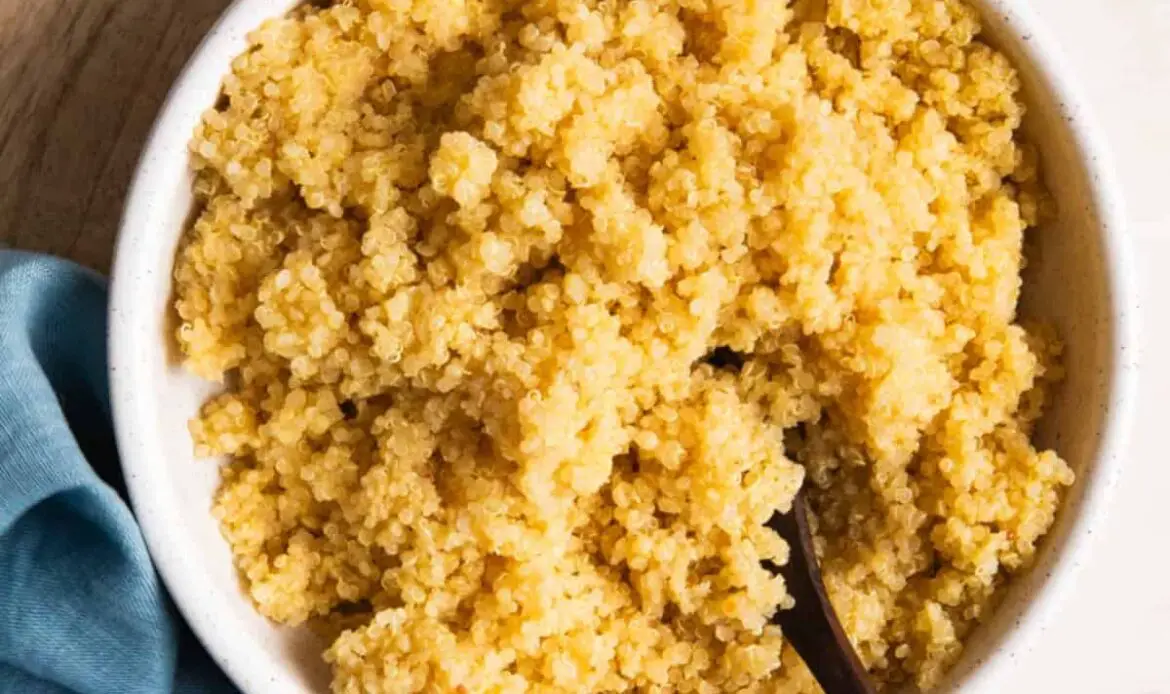
Quinoa is a versatile and highly nutritious grain that has gained popularity for its impressive health benefits. Originating from the Andean region of South America, quinoa has been a staple food for thousands of years. What sets quinoa apart from other grains is its remarkable nutritional profile. It’s packed with protein, containing all nine essential amino acids, which makes it a complete protein source—something that’s relatively rare in plant-based foods. This makes quinoa an excellent choice for vegetarians, vegans, and anyone looking to increase their protein intake without relying on animal products.
In addition to its protein content, quinoa is rich in dietary fiber, which supports digestive health and helps maintain a feeling of fullness, making it a great option for weight management. It’s also a good source of several important vitamins and minerals, including magnesium, iron, potassium, and B vitamins, which contribute to various bodily functions such as energy production, muscle function, and maintaining a healthy nervous system.
One of the significant advantages of quinoa is that it’s naturally gluten-free, making it a safe and nutritious option for people with celiac disease or gluten sensitivities. Its mild, nutty flavor and fluffy texture make it incredibly versatile in the kitchen. You can use quinoa as a base for salads, where it pairs well with fresh vegetables, herbs, and a variety of dressings. It can also be added to soups and stews to enhance their nutritional value and create a more filling meal.
Moreover, quinoa serves as an excellent substitute for rice or other grains in dishes like stir-fries, casseroles, or even as a side dish to accompany your favorite proteins. Its versatility doesn’t stop there—you can also incorporate quinoa into breakfast recipes by cooking it with milk and topping it with fruits, nuts, and a drizzle of honey for a nutritious start to your day.
Quinoa is a powerhouse grain that not only provides essential nutrients but also offers a flexible and delicious addition to a wide range of meals. Whether you’re looking to boost your protein intake, manage your weight, or simply enjoy a flavorful and healthy grain, quinoa is a fantastic choice to include in your diet.
2. Kale
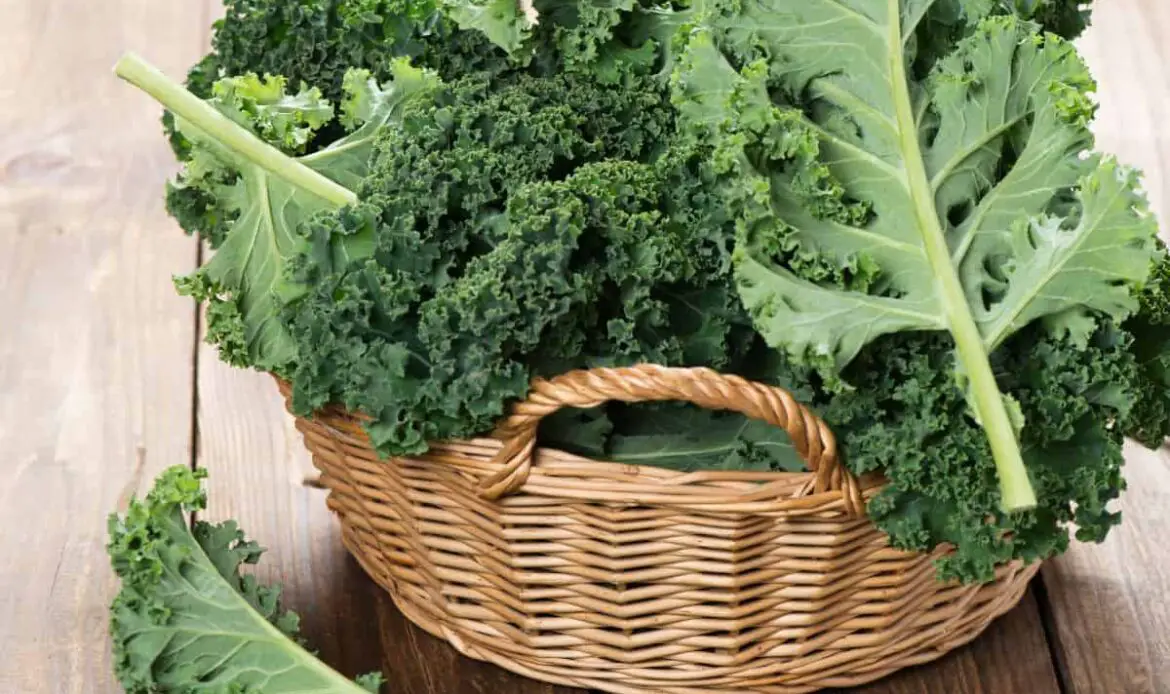
Kale is a leafy green vegetable that has earned a reputation as a superfood, and for good reason. This nutrient-dense green is packed with vitamins, minerals, and antioxidants that offer a wide array of health benefits.
One of the standout features of kale is its exceptionally high vitamin content. It’s rich in vitamin A, which is crucial for maintaining healthy vision, skin, and immune function. Kale is also an excellent source of vitamin K, a nutrient that plays a key role in blood clotting and bone health. Additionally, kale is loaded with vitamin C, an antioxidant that supports the immune system, helps the body absorb iron, and promotes healthy skin by boosting collagen production.
Beyond its impressive vitamin content, kale is also a good source of calcium, which is essential for strong bones and teeth, and it provides a plant-based source of this mineral, making it especially beneficial for those who avoid dairy products. The antioxidants found in kale, such as flavonoids and polyphenols, help combat oxidative stress in the body, reducing inflammation and lowering the risk of chronic diseases like heart disease and cancer.
Kale is also low in calories but high in fiber, which supports digestive health and helps you feel full, making it a great addition to a weight-conscious diet. Its high nutrient-to-calorie ratio makes it one of the most nutrient-dense foods available.
In the kitchen, kale is incredibly versatile. One of the simplest ways to enjoy kale is by tossing it into a fresh salad. Its sturdy leaves hold up well to various dressings, and it pairs beautifully with ingredients like nuts, fruits, and cheese. For a quick and easy nutritional boost, you can blend kale into smoothies, where its mild flavor can be easily masked by sweeter fruits like bananas and berries.
Another popular way to enjoy kale is by making kale chips. Baking kale in the oven with a light coating of olive oil and a sprinkle of salt transforms the leaves into crispy, delicious chips that make for a healthy snack alternative to traditional potato chips. You can also add kale to soups, stews, and stir-fries, where its hearty texture and slightly bitter taste can add depth and nutritional value to the dish.
Overall, kale is a powerhouse vegetable that deserves a place in your diet. Its wealth of vitamins, minerals, and antioxidants, combined with its culinary flexibility, make it an excellent choice for anyone looking to enhance their health with nutrient
3. Sweet Potatoes
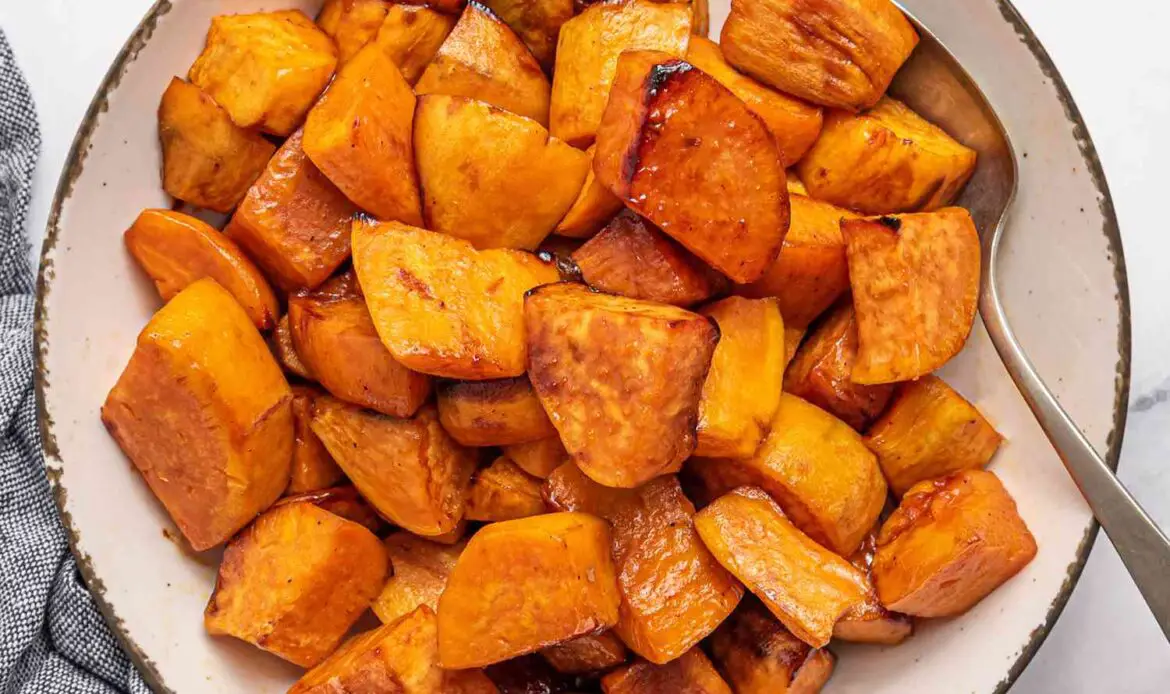
Sweet potatoes are not only delicious but also packed with numerous health benefits, making them a standout choice among root vegetables. They are a fantastic addition to a nutritious diet, thanks to their rich array of vitamins, minerals, and antioxidants.
One of the most significant health benefits of sweet potatoes is their high content of beta-carotene, a type of antioxidant that the body converts into vitamin A. Beta-carotene is known for its role in supporting healthy vision, boosting immune function, and promoting skin health. Adequate vitamin A intake is crucial for maintaining good eyesight and may help prevent age-related macular degeneration and night blindness.
Sweet potatoes are also an excellent source of dietary fiber. Fiber plays a key role in digestive health by promoting regular bowel movements and preventing constipation. It also helps maintain healthy blood sugar levels by slowing the absorption of sugar into the bloodstream, which can be beneficial for managing diabetes and reducing the risk of developing it. Additionally, fiber contributes to a feeling of fullness, which can help with weight management by curbing overeating.
In addition to beta-carotene and fiber, sweet potatoes are rich in vitamins A and C. Vitamin A, as mentioned, is essential for vision and immune health. Vitamin C, another powerful antioxidant found in sweet potatoes, supports the immune system, aids in the repair of tissues, and enhances the absorption of iron from plant-based foods. This vitamin also helps maintain healthy skin and can protect against cardiovascular disease by reducing oxidative stress in the body.
Sweet potatoes provide a good amount of potassium, a mineral that is crucial for maintaining proper heart and muscle function. Potassium helps regulate blood pressure by counteracting the effects of sodium and promoting fluid balance. This mineral is also important for nerve function and muscle contractions.
The versatility of sweet potatoes in the kitchen is another reason they are so valuable. You can bake them for a simple and nutritious side dish, roast them to bring out their natural sweetness, or mash them for a comforting and creamy texture. Sweet potatoes can also be used as a base for a hearty stew or soup, where their natural sweetness adds depth of flavor and their fiber content contributes to the dish’s satisfying texture.
Sweet potatoes are a nutritional powerhouse that offers numerous health benefits. Their high beta-carotene content supports vision and immune health, while their fiber aids in digestion and weight management. With their rich vitamin A and C content and potassium levels, sweet potatoes contribute to overall well-being and can be enjoyed in a variety of delicious ways. Including sweet potatoes in your diet is a tasty and nutritious choice that supports long-term health.
4. Avocado

Avocado is a versatile fruit renowned for its creamy texture and exceptional nutritional profile. It’s often celebrated for its healthy fats, fiber, and potassium content, all of which contribute to its impressive health benefits.
Healthy Fats
One of the standout features of avocados is their high content of monounsaturated fats, particularly oleic acid. These healthy fats are known to support heart health by reducing levels of bad cholesterol (LDL) while increasing good cholesterol (HDL). Monounsaturated fats can also help reduce inflammation and lower the risk of cardiovascular diseases. Unlike saturated fats found in many animal products, the fats in avocados are heart-friendly and can be beneficial for maintaining a healthy weight and metabolic function.
Fiber
Avocados are an excellent source of dietary fiber, with each serving providing about 7 grams. Fiber is essential for digestive health as it helps maintain regular bowel movements and prevent constipation. It also aids in controlling blood sugar levels by slowing down the absorption of carbohydrates, which is particularly beneficial for managing diabetes or reducing the risk of developing it. Additionally, fiber contributes to satiety, helping you feel fuller for longer periods, which can support weight management and prevent overeating.
Potassium
Avocados are rich in potassium, a mineral crucial for maintaining proper heart and muscle function. Potassium helps regulate blood pressure by balancing out the effects of sodium and promoting healthy fluid balance in the body. Adequate potassium intake can reduce the risk of hypertension (high blood pressure) and stroke. A single avocado contains more potassium than a medium-sized banana, making it an excellent choice for maintaining optimal electrolyte balance and overall cardiovascular health.
Versatility in Meals
Incorporating avocados into your diet is easy and delicious. Their creamy texture makes them a perfect addition to salads, where they can enhance the dish with a rich, buttery flavor. Avocados can also be blended into smoothies, adding a smooth consistency and a nutritional boost without overpowering the taste. For a quick and nutritious breakfast, spread mashed avocado on whole-grain toast, and top it with ingredients like tomatoes, eggs, or a sprinkle of seeds for added protein and flavor.
Avocados can also be used as a base for various dips, such as guacamole, which pairs well with vegetables or whole-grain chips. They can be added to sandwiches and wraps for extra creaminess and nutritional value or used as a substitute for mayonnaise or cream in recipes to reduce saturated fat content.
In summary, avocados are a nutrient-dense fruit that offers a wealth of health benefits. Their healthy fats support cardiovascular health, fiber aids in digestion and weight management, and potassium helps maintain blood pressure and muscle function. Whether you enjoy them in salads, smoothies, or as a simple spread, avocados are a delicious and versatile addition to a healthy diet.
5. Blueberries
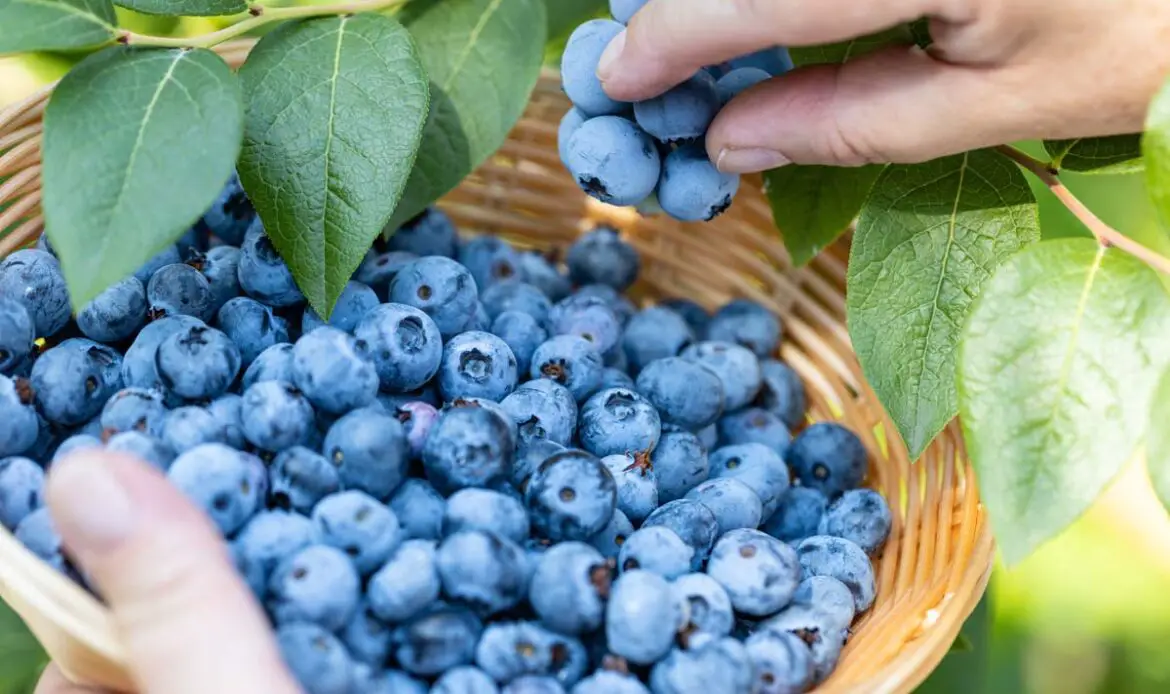
Blueberries may be small in size, but they pack a powerful nutritional punch that makes them an exceptional choice for a healthy diet. These little berries are renowned for their impressive antioxidant content, which contributes to their numerous health benefits.
Antioxidants
Blueberries are loaded with antioxidants, which help protect the body from oxidative stress and damage caused by free radicals. Free radicals are unstable molecules that can damage cells and lead to chronic diseases, including heart disease and cancer. The primary antioxidants found in blueberries are flavonoids, particularly anthocyanins, which give the berries their rich blue color. These antioxidants have been shown to reduce inflammation, improve cognitive function, and support overall cellular health.
Vitamin C
One of the key nutrients found in blueberries is vitamin C, an essential antioxidant that plays a vital role in maintaining a healthy immune system. Vitamin C helps stimulate the production of white blood cells, which are crucial for fighting infections and pathogens. Additionally, vitamin C is important for the synthesis of collagen, a protein that supports skin elasticity, wound healing, and the health of blood vessels. By incorporating blueberries into your diet, you can help ensure you’re getting a healthy dose of this essential vitamin.
Manganese
Blueberries are also a rich source of manganese, a mineral that is important for various bodily functions. Manganese plays a role in bone development, wound healing, and metabolism. It also acts as a cofactor for several enzymes involved in antioxidant defense, which helps protect cells from damage and supports overall health. Ensuring adequate manganese intake can contribute to better bone health and metabolic efficiency.
Versatility in Meals
Blueberries are incredibly versatile and can be enjoyed in various ways, making it easy to incorporate them into your diet. Fresh blueberries are perfect for snacking or adding to salads for a burst of flavor and nutrition. They can be blended into smoothies, where they complement other fruits and vegetables while providing a vibrant color and a sweet taste. Adding blueberries as a topping to yogurt or oatmeal not only enhances the flavor but also boosts the nutritional value of these meals. The natural sweetness of blueberries pairs well with the creaminess of yogurt and the heartiness of oatmeal, making for a satisfying and healthful breakfast or snack.
Blueberries can also be used in baking, such as in muffins, pancakes, or bread, where their flavor and antioxidant content can be enjoyed in a variety of baked goods. Frozen blueberries are a convenient option that retains their nutritional value and can be used in smoothies, desserts, or as a topping when fresh berries are not in season.
Blueberries are a nutrient-dense fruit that offers significant health benefits thanks to their high antioxidant content, including vitamin C and manganese. Their versatility in the kitchen allows for a range of delicious and nutritious options, from fresh snacking to incorporating them into meals and baked goods. Adding blueberries to your diet can help support overall health and well-being while satisfying your taste buds with their naturally sweet flavor.
6. Chickpeas
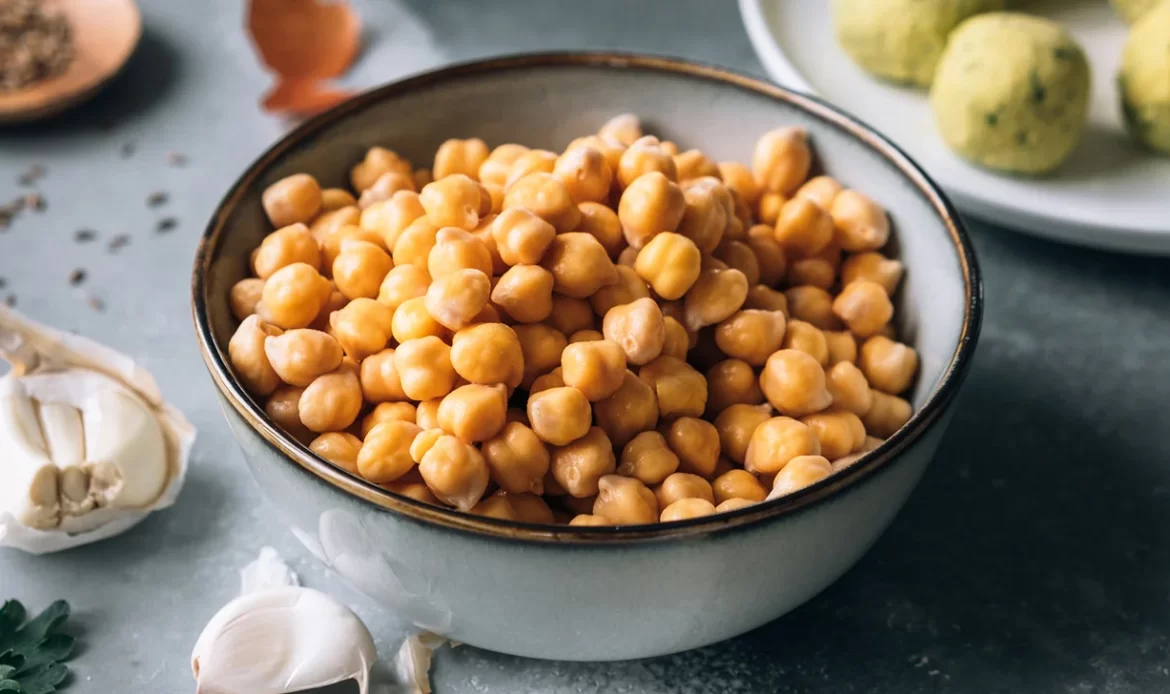
Chickpeas, also known as garbanzo beans, are a dietary staple in many vegetarian and vegan diets due to their impressive nutritional profile and versatility. These legumes are not only a rich source of protein and fiber but also provide a variety of essential vitamins and minerals.
High in Protein
One of the main reasons chickpeas are so popular in plant-based diets is their high protein content. Protein is essential for building and repairing tissues, producing enzymes and hormones, and supporting overall muscle health. Chickpeas offer a substantial amount of protein—about 15 grams per cup of cooked chickpeas—which makes them an excellent meat alternative for those following vegetarian or vegan diets. They provide a complete amino acid profile when combined with other plant-based proteins, which is important for optimal health and muscle maintenance.
Rich in Fiber
Chickpeas are also a great source of dietary fiber, with about 12 grams of fiber per cup of cooked chickpeas. Fiber is crucial for maintaining digestive health as it promotes regular bowel movements and helps prevent constipation. Additionally, fiber contributes to a feeling of fullness, which can aid in weight management by reducing overall calorie intake. Fiber also plays a role in stabilizing blood sugar levels, which is beneficial for managing diabetes or reducing the risk of developing it.
Vitamins and Minerals
In addition to protein and fiber, chickpeas are packed with a variety of vitamins and minerals that contribute to overall health. They are a good source of several B vitamins, including folate (vitamin B9), which is essential for DNA synthesis, red blood cell formation, and neurological health. Chickpeas also provide important minerals such as iron, which is crucial for oxygen transport in the blood, and magnesium, which supports muscle function and bone health.
Versatility in Meals
The versatility of chickpeas makes them an excellent addition to a wide range of dishes. In salads, chickpeas add a hearty texture and nutty flavor, making them a satisfying and protein-rich component. They can be tossed into vegetable salads, grain bowls, or mixed with herbs and spices for a flavorful addition.
Chickpeas are also a fantastic ingredient for soups and stews. They can be added to a variety of recipes, from classic chickpea and vegetable soup to hearty curries and stews, where they absorb flavors well and provide a creamy texture.
One of the most popular uses for chickpeas is in the form of hummus, a creamy dip made by blending cooked chickpeas with tahini, olive oil, lemon juice, and garlic. Hummus is a delicious and nutritious spread that can be enjoyed with pita bread, fresh vegetables, or used as a sandwich spread. It’s an easy way to incorporate chickpeas into your diet and enjoy their health benefits in a flavorful, satisfying form.
Chickpeas are a nutritional powerhouse that offers numerous health benefits, making them a staple in many vegetarian and vegan diets. Their high protein and fiber content, combined with their rich array of vitamins and minerals, support overall health and well-being. Whether you use them in salads, soups, or as a base for hummus, chickpeas provide a versatile and delicious way to enhance your diet with plant-based nutrients.
7. Almonds
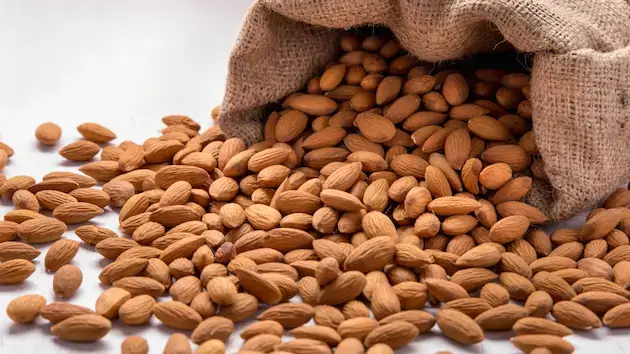
Almonds are a nutrient-dense nut that offers a wealth of health benefits, making them a popular choice for a nutritious snack or ingredient in various dishes. They are especially valued for their healthy fats, protein, and vitamin E content, all of which contribute to their status as a superfood.
Healthy Fats
One of the most notable aspects of almonds is their high content of healthy fats. Almonds are rich in monounsaturated fats, which are heart-healthy fats that can help lower bad cholesterol (LDL) levels while increasing good cholesterol (HDL). These fats support cardiovascular health by reducing inflammation and improving overall heart function. Unlike saturated fats found in many animal products, the fats in almonds are beneficial and contribute to a healthy diet. Additionally, almonds contain omega-3 fatty acids, which are known for their anti-inflammatory properties and support brain health.
Protein
Almonds are an excellent source of plant-based protein, providing about 6 grams of protein per ounce (approximately 23 almonds). Protein is essential for building and repairing tissues, producing enzymes and hormones, and supporting overall muscle health. For individuals following vegetarian or vegan diets, almonds offer a valuable protein source that complements other plant-based proteins to help meet daily protein needs.
Vitamin E
Almonds are particularly rich in vitamin E, a powerful antioxidant that plays a crucial role in protecting cells from oxidative damage caused by free radicals. Vitamin E helps maintain healthy skin and eyes, supports immune function, and may reduce the risk of chronic diseases such as heart disease. Just one ounce of almonds provides nearly half of the daily recommended intake of vitamin E, making them an excellent choice for boosting antioxidant levels in your diet.
Versatility in Meals
The versatility of almonds makes them a valuable addition to a wide range of dishes. As a standalone snack, almonds are both satisfying and nutritious, providing a crunchy texture and a satisfying taste. They can be enjoyed raw, roasted, or lightly salted, depending on your preference.
Almonds can also be incorporated into salads, adding a delightful crunch and a boost of protein and healthy fats. They pair well with a variety of salad ingredients, including leafy greens, vegetables, and fruits, enhancing both the flavor and nutritional value of the dish.
In baking, almonds can be used in various forms, such as sliced, chopped, or ground into almond flour. Almond flour is a popular gluten-free alternative to wheat flour and is often used in recipes for cakes, cookies, and bread. Almonds can also be used to create almond butter, which serves as a nutritious spread for toast or a tasty ingredient in smoothies and sauces.
Speaking of smoothies, almonds can be blended into smoothies to add a creamy texture and nutritional boost. Almond milk, a dairy-free milk alternative made from almonds, is another option for incorporating the benefits of almonds into your diet. It can be used in place of regular milk in a variety of recipes, including smoothies, cereals, and coffee drinks.
Almonds are a powerhouse of nutrition, offering healthy fats, protein, and vitamin E that contribute to overall health and well-being. Their versatility in the kitchen makes them a valuable ingredient in snacks, salads, baked goods, and smoothies. Whether enjoyed on their own or incorporated into various dishes, almonds provide a delicious and nutritious way to enhance your diet and support a healthy lifestyle.
8. Salmon

Salmon is highly regarded as one of the most nutritious fish available, offering a range of health benefits that make it a valuable addition to a balanced diet. Its impressive nutrient profile includes a wealth of omega-3 fatty acids, high-quality protein, and essential B vitamins, all of which contribute to its status as a superfood.
Omega-3 Fatty Acids
One of the standout features of salmon is its rich content of omega-3 fatty acids. Omega-3s are essential fats that play a crucial role in maintaining heart and brain health. They help reduce inflammation throughout the body, which can lower the risk of chronic diseases such as heart disease and arthritis. Omega-3 fatty acids also support brain function and mental health, with studies suggesting they may help improve cognitive function and reduce symptoms of depression and anxiety. By incorporating salmon into your diet, you can ensure you’re getting a significant amount of these beneficial fats, which are often lacking in modern diets.
High-Quality Protein
Salmon is an excellent source of high-quality protein, providing about 22 grams of protein per 3-ounce serving. Protein is essential for building and repairing tissues, producing enzymes and hormones, and supporting overall muscle health. The protein found in salmon is complete, meaning it contains all nine essential amino acids that the body cannot produce on its own. This makes salmon an excellent choice for supporting muscle growth, recovery, and overall bodily function.
B Vitamins
Salmon is also rich in B vitamins, including B12, B6, niacin (B3), and riboflavin (B2). These vitamins play vital roles in various metabolic processes and overall health. For example, vitamin B12 is crucial for red blood cell formation and neurological function, while vitamin B6 supports brain health and helps regulate mood. Niacin aids in digestion, skin health, and energy production, and riboflavin contributes to cellular function and energy metabolism. By consuming salmon, you can help ensure you’re meeting your needs for these important vitamins.
Versatility in Meals
Salmon’s versatility in cooking methods makes it easy to incorporate into a variety of meals. Grilling salmon brings out its natural flavors and provides a slightly smoky, charred taste. Baking salmon is a simple and healthy method that helps retain its moisture while allowing for various seasonings and marinades. Additionally, salmon can be enjoyed as part of a hearty salad, where its rich flavor complements fresh vegetables, grains, and light dressings.
Salmon can also be used in a range of dishes, from sushi and sashimi to creamy pasta and salmon cakes. It pairs well with a variety of ingredients, such as lemon, dill, garlic, and soy sauce, which enhance its taste while adding nutritional value. For a quick and nutritious meal, try adding salmon to a bowl of quinoa or brown rice, topped with steamed vegetables and a light sauce.
Salmon is a nutritional powerhouse that offers numerous health benefits due to its high content of omega-3 fatty acids, high-quality protein, and essential B vitamins. Whether you enjoy it grilled, baked, or as part of a flavorful salad, incorporating salmon into your diet can support heart health, brain function, and overall well-being. Its versatility in preparation and rich nutritional profile make it a delicious and valuable addition to a healthy diet.
9. Broccoli
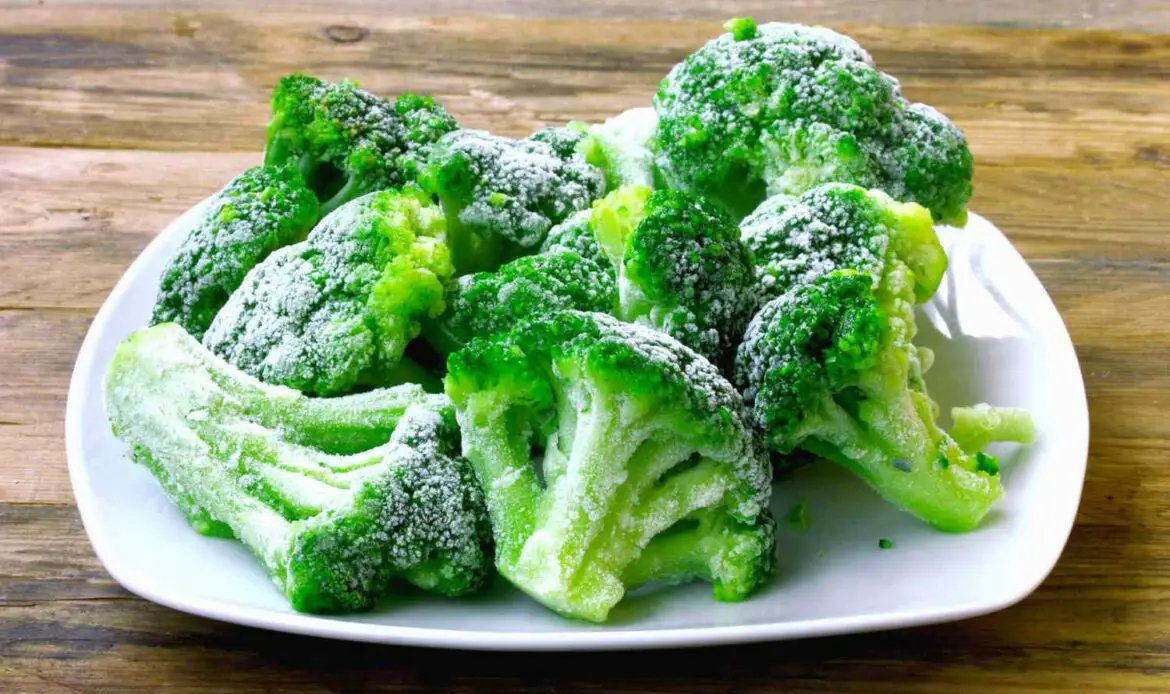
Broccoli is a standout cruciferous vegetable known for its impressive nutritional profile and health benefits. This green veggie is not only high in fiber but also rich in essential vitamins and antioxidants, making it a valuable addition to any diet.
High in Fiber
Broccoli is an excellent source of dietary fiber, providing about 2.4 grams per cup of cooked broccoli. Fiber is crucial for digestive health as it helps maintain regular bowel movements and prevent constipation. It also contributes to a feeling of fullness, which can aid in weight management by reducing overall calorie intake. Additionally, the fiber in broccoli supports heart health by helping to lower cholesterol levels and stabilize blood sugar levels, which is particularly beneficial for managing diabetes or reducing the risk of developing it.
Vitamins C and K
Broccoli is rich in vitamin C, an essential antioxidant that supports the immune system, enhances iron absorption, and promotes healthy skin by boosting collagen production. A single serving of broccoli can provide a significant portion of your daily vitamin C needs, helping to protect against infections and support overall cellular health.
Broccoli is also an excellent source of vitamin K, which plays a vital role in blood clotting and bone health. Vitamin K helps in the synthesis of proteins necessary for blood clotting and bone mineralization. Adequate vitamin K intake is important for maintaining strong bones and reducing the risk of fractures, especially as you age.
Antioxidants
In addition to vitamins C and K, broccoli is packed with various antioxidants that contribute to its health benefits. These include sulforaphane, a compound with anti-inflammatory and anti-cancer properties, and lutein and zeaxanthin, which are beneficial for eye health. Antioxidants help combat oxidative stress and protect cells from damage caused by free radicals, reducing the risk of chronic diseases and supporting overall well-being.
Versatility in Meals
Broccoli’s versatility makes it easy to incorporate into a wide range of dishes. Steaming broccoli is one of the simplest methods of preparation, preserving its nutrients while maintaining a tender-crisp texture. Roasting broccoli brings out its natural sweetness and adds a slightly caramelized flavor, which pairs well with a variety of seasonings and spices.
Sautéing broccoli with garlic, olive oil, or other vegetables can create a flavorful side dish or a component of a hearty stir-fry. Broccoli can also be added to casseroles, where it complements other ingredients and enhances the dish with its nutritional value and texture. Additionally, raw broccoli can be enjoyed as a crunchy and healthy snack, often paired with dips like hummus or yogurt-based dressings.
Broccoli is a nutrient-dense vegetable that offers numerous health benefits due to its high fiber content, rich vitamin profile, and antioxidant properties. Whether steamed, roasted, sautéed, or added to various dishes, broccoli provides a delicious and versatile way to support overall health and well-being. Its ability to enhance both the flavor and nutritional value of meals makes it a valuable addition to a balanced diet.
10. Chia Seeds
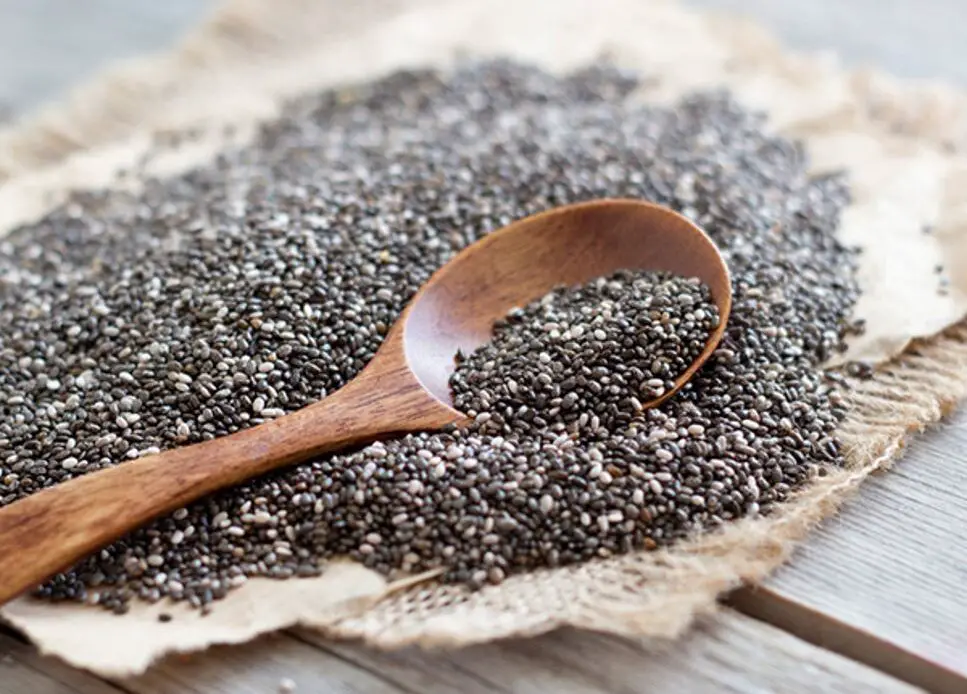
Chia seeds, though tiny, are incredibly nutrient-dense and offer a range of health benefits that make them a popular choice for enhancing various dishes. Their impressive nutritional profile includes a rich supply of omega-3 fatty acids, fiber, and protein, all of which contribute to their status as a superfood.
Omega-3 Fatty Acids
Chia seeds are an excellent plant-based source of omega-3 fatty acids, particularly alpha-linolenic acid (ALA). Omega-3 fatty acids are essential fats that play a crucial role in maintaining heart health, reducing inflammation, and supporting brain function. They help lower bad cholesterol (LDL) levels while increasing good cholesterol (HDL), which can reduce the risk of cardiovascular diseases. Additionally, omega-3s are known for their anti-inflammatory properties, which can help alleviate symptoms of conditions like arthritis and support overall joint health.
Fiber
Chia seeds are packed with dietary fiber, offering about 10 grams of fiber per ounce (approximately two tablespoons). This high fiber content aids in digestive health by promoting regular bowel movements and preventing constipation. Fiber also helps to stabilize blood sugar levels by slowing the absorption of sugar into the bloodstream, which can be beneficial for managing diabetes. Furthermore, fiber contributes to a feeling of fullness, which can aid in weight management by reducing overall calorie intake and preventing overeating.
Protein
Chia seeds are a good source of plant-based protein, providing about 4 grams of protein per ounce. Protein is essential for building and repairing tissues, producing enzymes and hormones, and supporting overall muscle health. The protein in chia seeds is considered complete because it contains all nine essential amino acids that the body cannot produce on its own. This makes chia seeds a valuable addition to plant-based diets, helping to ensure adequate protein intake.
Versatility in Meals
The versatility of chia seeds makes them easy to incorporate into a variety of meals and snacks. They have a mild, nutty flavor that blends well with both sweet and savory dishes. Adding chia seeds to smoothies is an easy way to boost their nutritional content, providing a creamy texture and a dose of healthy fats, fiber, and protein.
Chia seeds can also be mixed into yogurt or oatmeal, where they add a pleasant crunch and additional nutrients. When combined with liquid, chia seeds form a gel-like consistency, making them ideal for creating chia pudding. Chia pudding is a healthy dessert option that can be flavored with fruits, nuts, or spices, providing a nutritious and satisfying treat. To make chia pudding, simply combine chia seeds with your choice of milk or a dairy-free alternative, let the mixture sit for several hours or overnight, and then enjoy a creamy, nutrient-rich dessert.
Chia seeds are a tiny yet powerful nutritional powerhouse that offers significant health benefits. Their high content of omega-3 fatty acids, fiber, and protein supports heart health, digestive function, and overall muscle health. Whether added to smoothies, yogurt, or transformed into chia pudding, these versatile seeds provide a convenient and nutritious way to enhance your diet and promote overall well-being.
How to Start Incorporating More Whole Foods Into Your Diet
Transitioning to a diet rich in whole foods doesn’t have to be difficult. Start by replacing processed snacks with whole food alternatives like fruits, nuts, or vegetables. Plan your meals around whole foods, and try to cook at home more often to ensure you’re using fresh ingredients. Meal planning can also help you stick to a whole foods diet by making it easier to prepare nutritious meals in advance.
Incorporating whole foods into your diet is one of the best things you can do for your health. Not only are these foods packed with nutrients, but they also help you feel more energized and satisfied. By trying the 10 whole foods mentioned in this article, you’ll be well on your way to a healthier, more balanced diet. Remember, small changes can make a big difference, so start experimenting with these foods today!

